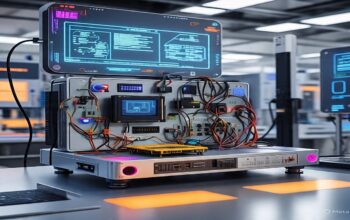An era in which artificial intelligence (AI) is changing the shape of industries, automating tasks, and challenging norms for human labor has led to much debate over whether one’s job will be replaced. Efficiency and pattern recognition are where AI outperforms, but when it comes to creativity, empathy, or making decisions that require a human touch, AI lacks it. Here are five professions AI can’t replace and the reasons they are safe.
Covered Contents
ToggleCreative Professionals: Artists, Writers, Musicians:
Creativity is one of the most distinctly human traits, marked by imagination, emotional depth, and originality. While AI tools like ChatGPT or MidJourney can assist in generating content, they lack the innate understanding of human experiences, emotions, and cultural context that drive authentic creativity.
Why Those Jobs Are Safe:
Artificial Intelligence, being a mimicry machine may at best mimic patterns, and create an imitation but can never come up with newness. Suppose an AI created a painting: it wouldn’t portray a slice of the personal turmoil of defeat of the artist or any conquest. The same can be seen from writing and music; their composition emanates from personal experience so different from the mechanical and not replicable by a machine.
Challenges for AI:
-
Lack of creativity
-
Fail to connect with the people.
-
Limited knowledge of changing cultural sensitivities
Healthcare Professionals: Physicians, Nurses, and Counselors:
Healthcare is highly dependent on human judgment, empathy, and the ability to adapt to complex and unpredictable situations. Although AI can be used in diagnostics and data analysis, it cannot replace the care and reassurance a human provider gives.
Why These Jobs Are Safe:
Nurses and doctors, oftentimes, are emotional anchors to patients. A machine would be able to diagnose an illness correctly but cannot comfort a distraught patient or talk of certain issues with empathy. Therapists, in particular, will need to establish trust and rapport; which AI is not yet in the position to do authentically.
Challenges AI Confronts:
-
Building a level of trust with the patients
-
Adjusting to subtle nonverbal cues
-
Ethical judgment call in gray areas
Educators: Teachers and Trainers:
It’s not just about delivering information but inspiring, mentoring, and nurturing critical thinking. The jobs of teachers are very much to do with personalizing the learning experience and understanding the emotional and developmental needs of their students.
Why These Jobs Are Safe:
A good teacher has to be more than a communicator, with a knack for adaptability and emotional intelligence. AI could tell me something and maybe even offer quizzes, but it could never replace a teacher who encourages a struggling student or adjusts real-time to fit the student’s learning needs.
Limitations of AI
-
No emotional intelligence
-
Handling an unpredictable classroom is hard.
-
Lack of cultural sensitivity.
Skilled Trades: Electricians, Plumbers, and Carpenters:
Skilled trades encompass work that is highly physically interactive and requires problem-solving, adaptability, and other dexterities. Skilled trades often require creativeness and on-the-fly decision-making to solve unique problems in the world.
Why These Jobs Are Safe:
AI and robots are not suitable for unpredictable physical environments. Such as fixing complex plumbing in an old house usually requires experience-based intuitive decision-making machines cannot.
What AI Can’t Do:
-
Physical limitations in tasks
-
Lack of contextual understanding of diverse environments
-
High costs of robotic adaptation for unique tasks
Leaders and Strategic Decision-Makers:
Leadership roles require vision, ethics, and the ability to inspire and influence people. While AI can analyze data and offer recommendations, it cannot make judgment calls that require an understanding of human values, emotions, and consequences.
Why These Jobs Are Safe:
Leaders have to make decisions in complex, uncertain situations and have to consider not just facts but also the morale and cultural dynamics of their teams. A CEO’s decision to pivot a company isn’t just about algorithms—it’s about intuition, experience, and the ability to inspire confidence.
Challenges AI Faces:
-
Lack of ethical and moral reasoning
-
Cannot innovate independently
-
Cannot inspire or connect with teams
The Limits of AI:
Despite AI’s impressive capabilities, its limitations arise from the fact that it lacks emotional intelligence, creativity, and an understanding of the nuances of human experiences. Here are some general reasons why these jobs are safe:
-
Emotional Depth: AI cannot replicate human emotions or build authentic relationships. A Complex Problem-Solving: Many jobs require adaptability and out-of-the-box thinking that AI lacks.
-
Physical Interaction: Tasks requiring dexterity and intuition remain beyond AI’s reach.
-
Cultural Sensitivity: Context forms human interaction – something AI finds hard to grasp.
Final Thoughts:
The rise of AI will certainly revolutionize industries, but the jobs that require human creativity, empathy, and critical thinking will hardly be replaced. Professionals should not fear AI but learn how to use it as a tool to complement their skills and enhance productivity. By honing uniquely human traits, we can ensure our roles remain indispensable in the age of AI.



4 thoughts on “5 Jobs That AI Can’t Replace and Why They Are Safe”